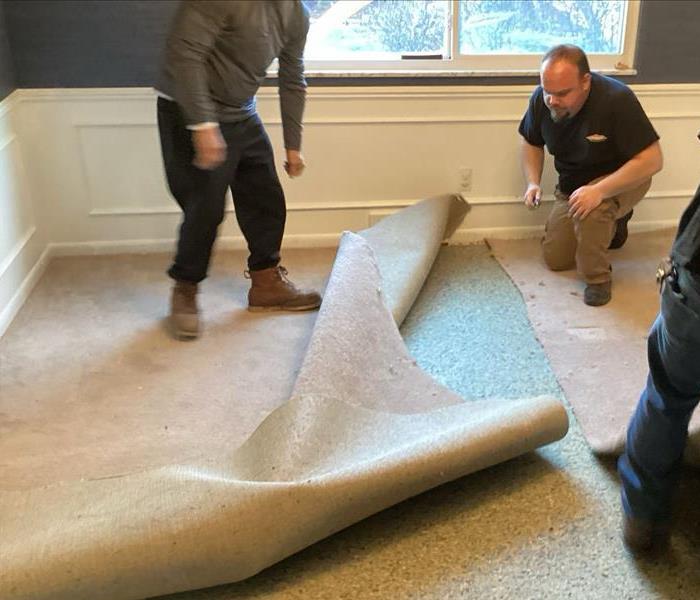Comprehensive Guide to Proper Debris Disposal After Water Damage
2/15/2024 (Permalink)
 Water or flood damage can result in a substantial amount of waste that needs proper handling and disposal.
Water or flood damage can result in a substantial amount of waste that needs proper handling and disposal.
Water or flood damage can result in a substantial amount of waste that needs proper handling and disposal. From damaged belongings to contaminated materials, managing the waste generated during water damage restoration is essential for safety and environmental reasons. In this blog, we'll provide a comprehensive guide to waste removal and disposal to ensure a thorough and responsible cleanup process.
1. Safety First: Assessing Waste Materials
Before handling any waste materials, prioritize safety. Identify and segregate items damaged by water or contamination. Categorize waste into non-hazardous and hazardous materials based on their potential risks to the surroundings and the environment. Hazardous waste might include items contaminated by sewage or chemicals.
2. Proper Handling and Segregation
Separate items into categories for disposal: salvageable items, non-hazardous waste, and hazardous waste. Salvageable items can undergo restoration, while non-hazardous waste, like drywall or carpets, can often be disposed of in regular waste bins. Hazardous waste should be handled with extreme caution and disposed of following specific guidelines.
3. Disposal of Non-Hazardous Waste
Non-hazardous waste like damaged furniture, drywall, or flooring can typically be disposed of following local regulations. Bag or wrap these materials securely and dispose of them following your area's waste management guidelines.
4. Proper Disposal of Hazardous Waste
Hazardous waste, including contaminated materials or chemicals, requires specialized handling and disposal. Contact local authorities or waste disposal facilities for guidance on how to properly dispose of hazardous waste. Professional waste removal services may be necessary for safe disposal.
5. Recycling and Sustainable Practices
Whenever possible, opt for recycling damaged materials such as metal, glass, or plastic. Salvageable items can be donated if they're in a condition to be reused. Promoting recycling and sustainable practices minimizes the environmental impact of waste generated during water damage restoration.
6. Professional Restoration Services
Consider engaging professional restoration services, like SERVPRO®, that specialize in water damage cleanup. These experts have the knowledge, tools, and experience to manage waste removal and disposal safely and efficiently, adhering to environmental regulations.
Proper waste removal and disposal are critical aspects of water/flood damage restoration. Safely managing waste materials, segregating non-hazardous from hazardous waste, following local disposal guidelines, recycling where possible, and considering professional restoration services are key steps toward a responsible cleanup process.
At SERVPRO of Grosse Pointe, we prioritize safe and responsible waste removal during water damage restoration. Our experienced team ensures proper handling and disposal of waste materials, adhering to environmental guidelines. Contact us for expert assistance in water damage restoration and responsible waste disposal!






 24/7 Emergency Service
24/7 Emergency Service